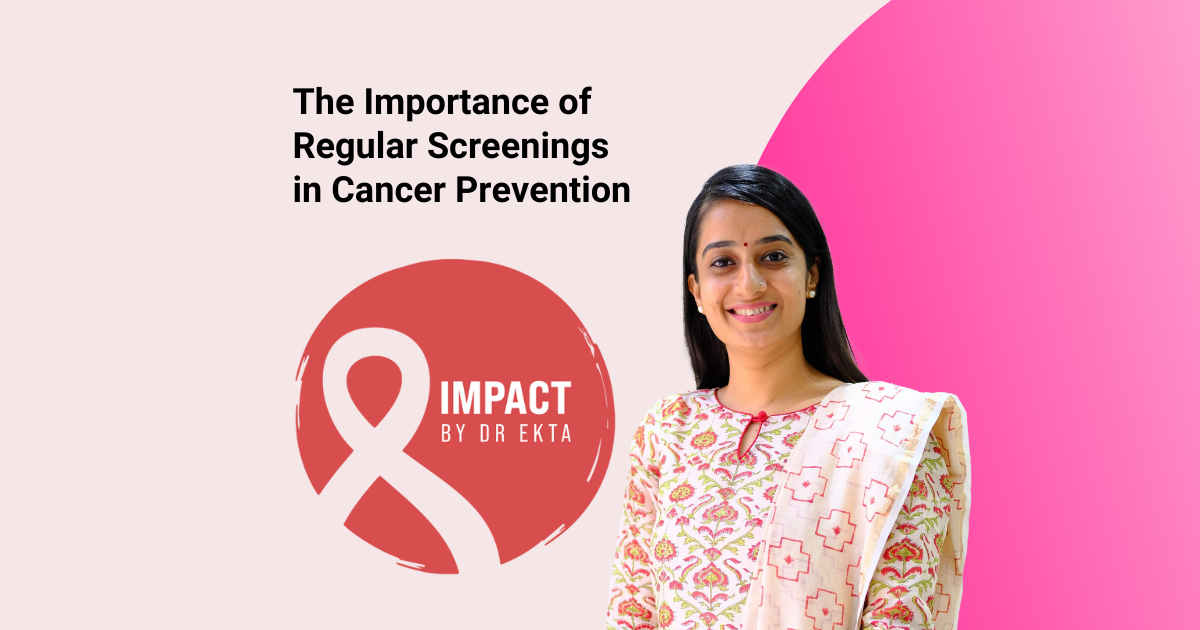I have witnessed countless times how the simple act of undergoing regular screenings has saved lives. Cancer is a daunting diagnosis, but early detection can make all the difference. While there is no way to eliminate the risk of cancer entirely, regular screenings remain one of the most effective tools in cancer prevention.
Why Screenings Matter
Cancer prevention isn’t just about avoiding risk factors; it’s also about catching potential issues early. Many cancers, such as breast, cervical, colorectal, and prostate cancers, develop silently, showing no symptoms until they are in advanced stages. Regular screenings can detect these cancers early when treatments are more effective and survival rates are higher.
For example, mammograms for breast cancer and Pap smears for cervical cancer have revolutionized outcomes by identifying abnormalities before they progress. Similarly, colonoscopies can detect and remove precancerous polyps, directly preventing colorectal cancer. These screenings are not just diagnostic they are proactive steps in cancer prevention.
Types of Screenings and Their Impact
The world of cancer prevention offers various screening options tailored to specific types of cancer. Here are some examples:
- Breast Cancer:
A mammogram is the gold standard for breast cancer detection. Women over 40 are encouraged to have annual or biennial mammograms, depending on their risk factors. - Cervical Cancer:
A Pap smear, often combined with an HPV test, is recommended for women starting from the age of 21. These tests can detect abnormal cells and the presence of high-risk HPV strains that may lead to cervical cancer. - Colorectal Cancer:
Colonoscopies are essential for adults aged 45 and older. This screening can detect polyps, which, when removed, prevent cancer from forming. - Lung Cancer:
Low-dose CT scans are recommended for individuals with a significant smoking history. Early detection of lung cancer can significantly improve survival rates. - Prostate Cancer:
PSA (Prostate-Specific Antigen) tests and digital rectal exams are tools used for detecting prostate cancer in men, particularly those over 50 or with a family history of the disease.
Debunking Myths About Screenings
I often hear myths about cancer prevention that deter people from getting screened. Some believe that screenings are unnecessary if they feel healthy or that they are only for those with a family history of cancer. Let me set the record straight:
- Cancer does not always cause noticeable symptoms early. Screenings are crucial for detecting cancers before symptoms arise.
- Family history is not the only risk factor. Many cancers occur in people with no known family history. Factors like age, lifestyle, and environmental exposures also play a role.
- Screenings do not cause cancer. Techniques like mammograms and CT scans use minimal doses of radiation that are carefully regulated and safe.
Overcoming Barriers to Screening
Despite the proven benefits of screenings, many people hesitate to undergo them. Cost, fear, and lack of awareness are common barriers. To address these:
- Education is key. Spreading awareness about the importance of cancer prevention and the availability of free or low-cost screening programs can encourage participation.
- Reducing fear. Many people avoid screenings due to fear of pain or receiving bad news. As a physician, I always emphasize that knowledge is power, and early detection provides the best chance for successful treatment.
- Accessibility. Governments and organizations should work to make screenings more accessible, particularly in rural or underserved areas. Mobile screening units, for instance, are an innovative solution.
The Role of Lifestyle in Prevention
Regular screenings are just one piece of the cancer prevention puzzle. A healthy lifestyle complements these efforts by reducing overall risk. Balanced nutrition, regular exercise, avoiding tobacco, limiting alcohol consumption, and protecting your skin from UV rays are all steps you can take to lower your cancer risk.
However, even the healthiest lifestyle cannot guarantee immunity from cancer. That’s why screenings are essential they catch what lifestyle measures alone cannot prevent.
How You Can Take Action
If you’re wondering how to start your journey toward cancer prevention, here are some steps:
- Understand your risk factors. Speak to your doctor about your personal and family medical history.
- Follow screening guidelines. Based on your age, gender, and risk factors, your doctor can recommend appropriate screenings.
- Stay informed. Advances in cancer prevention and screening methods are continually emerging. Staying updated can empower you to make informed decisions.
- Encourage loved ones. Your advocacy can inspire friends and family to prioritize their health.
The Broader Impact of Screenings
Regular screenings do more than detect cancer early they contribute to a collective effort to reduce the global cancer burden. When cancers are caught early, treatments are less invasive, survival rates improve, and healthcare costs decrease.
By participating in screening programs and encouraging others to do the same, you are contributing to a healthier community. Early detection is not just about individual health it’s about creating a ripple effect of awareness and action.
A Call to Action
As someone who has dedicated my life to oncology, I cannot stress enough the importance of regular screenings in cancer prevention. They are a cornerstone of proactive healthcare, bridging the gap between prevention and treatment.
If you’ve been postponing your screenings, let today be the day you prioritize your health. Speak with your doctor, schedule your appointments, and take that crucial step toward cancer prevention. Together, we can fight cancer with knowledge, early detection, and the power of prevention.

